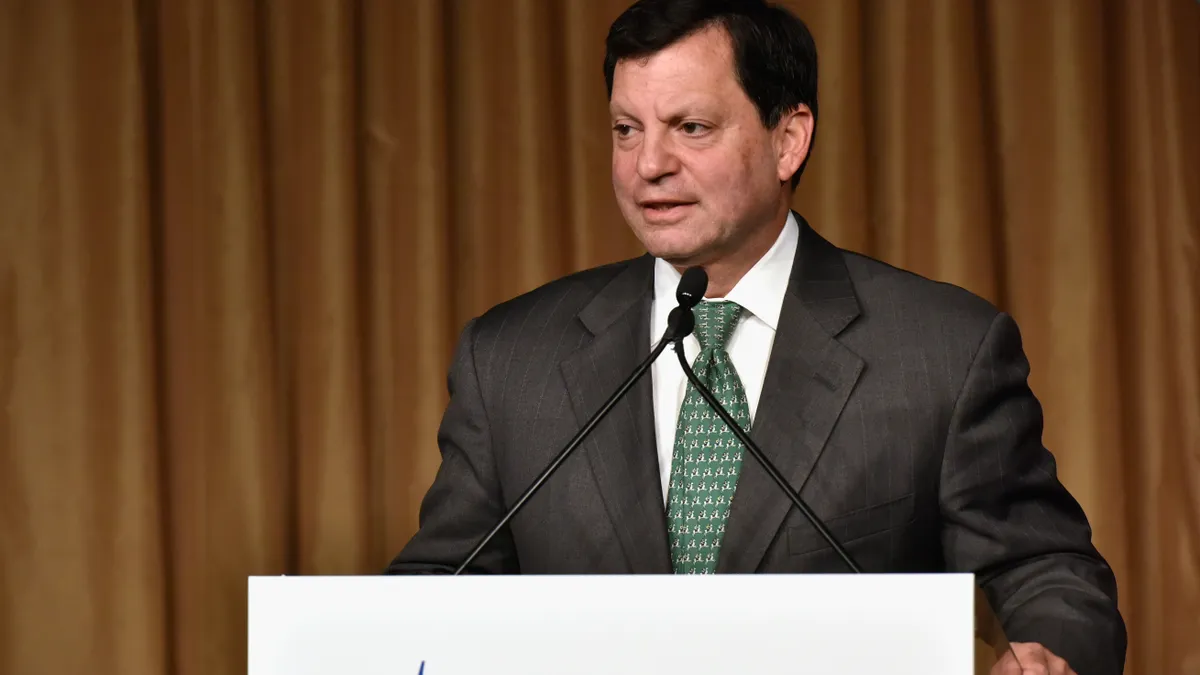Fiserv is benefiting from the sale of its services abroad, but also from an increase in demand from U.S., state and local government clients.
Demand for the company's Clover point-of-sale software lifted international sales to merchants, the processing giant reported Tuesday in a first-quarter earnings press release. The Clover offering, which is directed mainly at small merchant clients, logged a 30% increase for the first quarter relative to last year, following a similar rise in the fourth quarter, according to a company web presentation.
"Our progress in international markets continues to differentiate Fiserv," CEO Frank Bisignano said during a call with analysts Tuesday, spelling out the company's specific customer contracts in South America, Europe and elsewhere.
Fiserv has ambitious growth targets for Clover, seeking to generate annual revenue of more than $4 billion in 2026, the company shared at its investor day last November.
Bisignano cited Germany and the Netherlands as countries where the company's Clover point-of-sale services is making inroads with an assist from joint ventures. He also noted expansion in Argentina and a plan to roll out Clover services in Mexico and Brazil in the second half of this year. Fiserv is also reaching Clover services into Asia, where it's adding clients in Singapore and Hong Kong, while also courting customers in Australia.
Milwaukee-based Fiserv reported first-quarter net income climbed 31% to $735 million over the year-earlier period as revenue rose 9% to $4 billion, according to the company's earnings release.
In its financial technology services business segment, the company has been buoyed by sales to government entities in the U.S., with the first-quarter results including $500 million in sales to that category of customers. Texas and Nevada are among the company's state customers. Its Finxact unit also landed a new major U.S. agency customer during the first quarter, the CEO said, without naming the client.
"On any given day, almost any one of our products can play in the government space," Bisignano said. "We really love this segment."
The government clients also included servicing an Argentine central government program that provides foreign currency denominated credit cards. That program is directed at lifting the country's economy so while it's a transitory benefit to Fiserv now, it may not be in the future, Bisignano noted.
When Bisignano was asked by an analyst about the ability of Fiserv to sustain its first-quarter international sales growth, the CEO sidestepped the question, but noted Fiserv would stay focused on international opportunities.
The company’s overall expansion has benefited in the past from acquisitions and mergers.
“Through internal investment and M&A activity, Fiserv has developed a diversified and global business that is positioned to benefit from several long-term secular tailwinds, including increased consumption, the growth of electronic payments, digital transformation, and embedded finance,” analysts at the financial firm William Blair said in a note to clients Tuesday.
In response to a question about Fiserv's appetite to further expansion through acquisitions, the company's chief financial officer, Bob Hau, gave a mixed outlook on what buying opportunities are available.
"It's strong appetite, but we're not hungry," Hau told the analysts Tuesday. "We're certainly seeing a lot of activity, but we're not hungry. And while we have tremendous capacity on our balance sheet, and could do deals, we're making sure that what we see is of good value and brings value to our shareholders."











